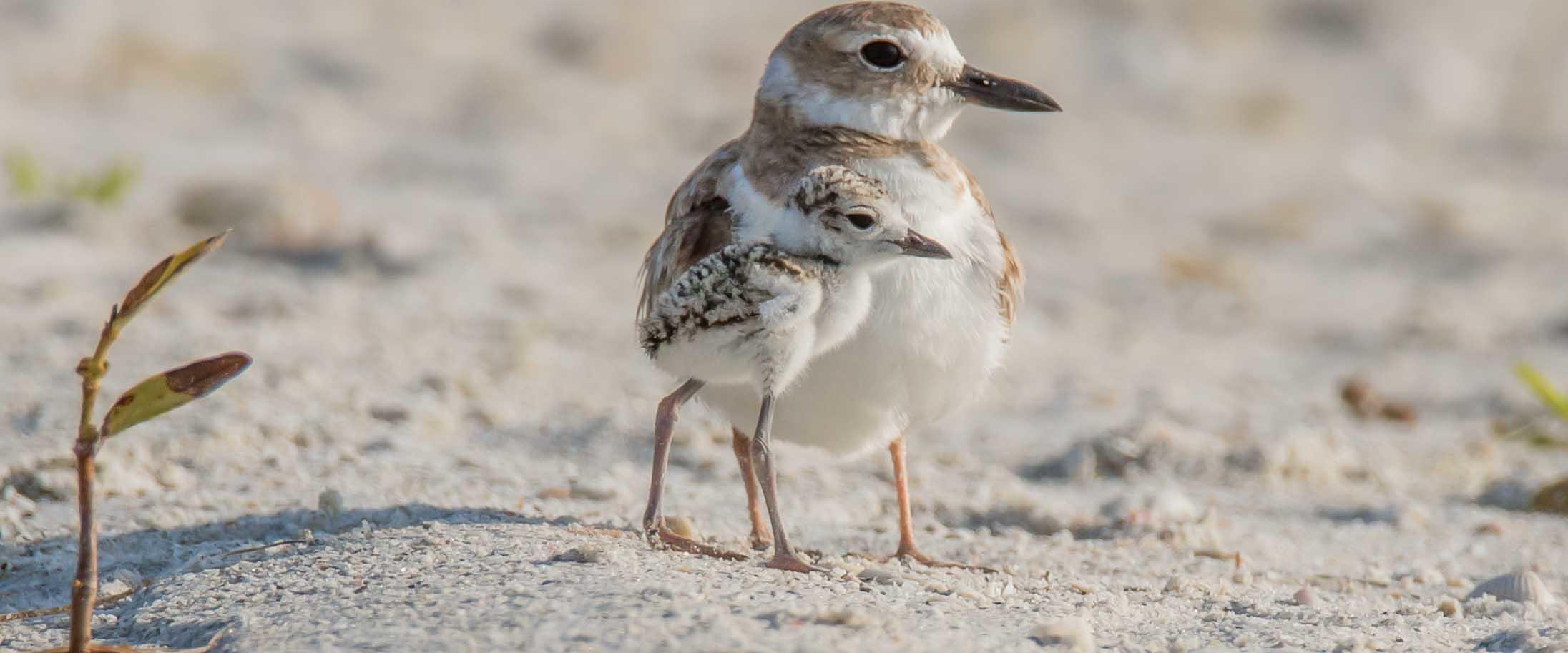Summertime is the best time of year to spend time on the boat or at one of Florida's world-class beaches. And just like people, iconic coastal bird species like Reddish Egrets, Snowy Plovers, and Least Terns can be spotted with their young in Florida's unique coastal habitats. In fact, coastal habitats serve as nurseries, and birds need them to breed and raise chicks.
Many Florida nesting sites are visibly posted and well-marked to protect them from human disturbance. When boaters or beachgoers disturb birds near and inside of posted areas, they may unintentionally cause the death of chicks and eggs. When parents are frightened from nests, chicks and eggs are left vulnerable to predators, overheating in the summer sun, crushing underfoot (in beach nests), or falling and drowning in water beneath the nest (from tree nests). A single disturbance can destroy an entire colony.
"Whether or not human disturbance is intentional, the sad result for birds is the same," said Dr. Marianne Korosy, Audubon Florida’s director of bird conservation. "By following Audubon’s easy tips, we can all work together to ensure a safe and enjoyable summertime for people and birds."
If you come across a posted nesting area or see nesting coastal birds, follow these easy tips:
- Respect areas posted with signs or string, even if you don't see birds inside them. Birds, eggs, and nests are well-camouflaged.
- Fireworks can terrify baby birds (read more) and scatter debris on the beach that baby birds can eat. Leave personal fireworks at home. Attend only official firework displays instead.
- Leave no trace. Take trash with you and always dispose of fishing line and tackle appropriately.
- Avoid disturbing birds. If birds take flight or appear agitated, you are too close.
- Keep pets leashed and far away from birds. Even leashed dogs are perceived as predators by birds.
- Don’t feed birds or wildlife. It attracts predators like crows and gulls.
- Look out for nesting birds, even outside of posted areas. Birds can’t read signs and sometimes nest outside of posted areas. If you notice birds circling noisily overhead, you may be near a colony. Leave quietly and enjoy from a distance.
Volunteer "bird stewards" chaperone nesting bird colonies on many Florida beaches. These stewards help educate beachgoers about nesting colonies while reminding them not to enter protected areas. For more information or to volunteer, email FLConservation@audubon.org.







